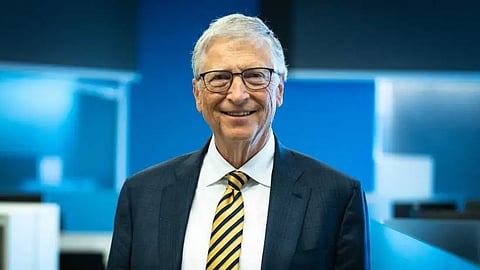

In a landmark announcement at the African Union headquarters in Addis Ababa, Ethiopia, Bill Gates revealed that he will donate 99% of his estimated $198 billion fortune to Africa over the next 20 years. The Microsoft co-founder said the initiative will focus primarily on healthcare and education, with the goal of achieving measurable, life-changing outcomes within his lifetime.
“This is not just a donation,” Gates emphasized. “Most of that money will assist you in addressing issues here in Africa.” His approach marks a departure from open-ended philanthropy toward a time-bound, results-oriented model.
A major focus will be on strengthening primary healthcare systems across the continent. The Bill & Melinda Gates Foundation, already active in Africa, will lead these efforts. Special emphasis will be placed on maternal and child health, particularly during the critical window from pregnancy to a child’s fourth birthday. Interventions will include improving access to vaccines, nutrition, and basic care to reduce stunting and preventable diseases, especially in underserved rural communities.
Education is the second major pillar of Gates’ commitment. Recognizing that long-term economic progress hinges on how well Africa educates its youth, the foundation will invest in early childhood education, especially for girls and marginalized groups. Initiatives will include better teacher training, educational resources, and digital learning platforms to overcome infrastructure limitations.
Gates also called on African innovators to harness artificial intelligence (AI) for local solutions, highlighting examples like AI-powered ultrasound tools in Rwanda and mobile health apps that remotely monitor patient health. He believes AI can help Africa leapfrog traditional barriers to healthcare delivery.
Notably, Gates announced that the Gates Foundation will cease operations by 2045, aligning with the completion of his wealth transfer. This "sunset clause" is intended to drive focused, urgent action and minimize bureaucracy.
This massive philanthropic push comes at a time when foreign aid to Africa is declining, particularly from the U.S., with cuts to programs targeting HIV/AIDS, malaria, and tuberculosis. Gates' pledge is poised to fill critical funding gaps and protect decades of progress.
Only 1% of his wealth will go to his children, reinforcing his belief in using wealth for systemic global improvement, not inherited privilege.